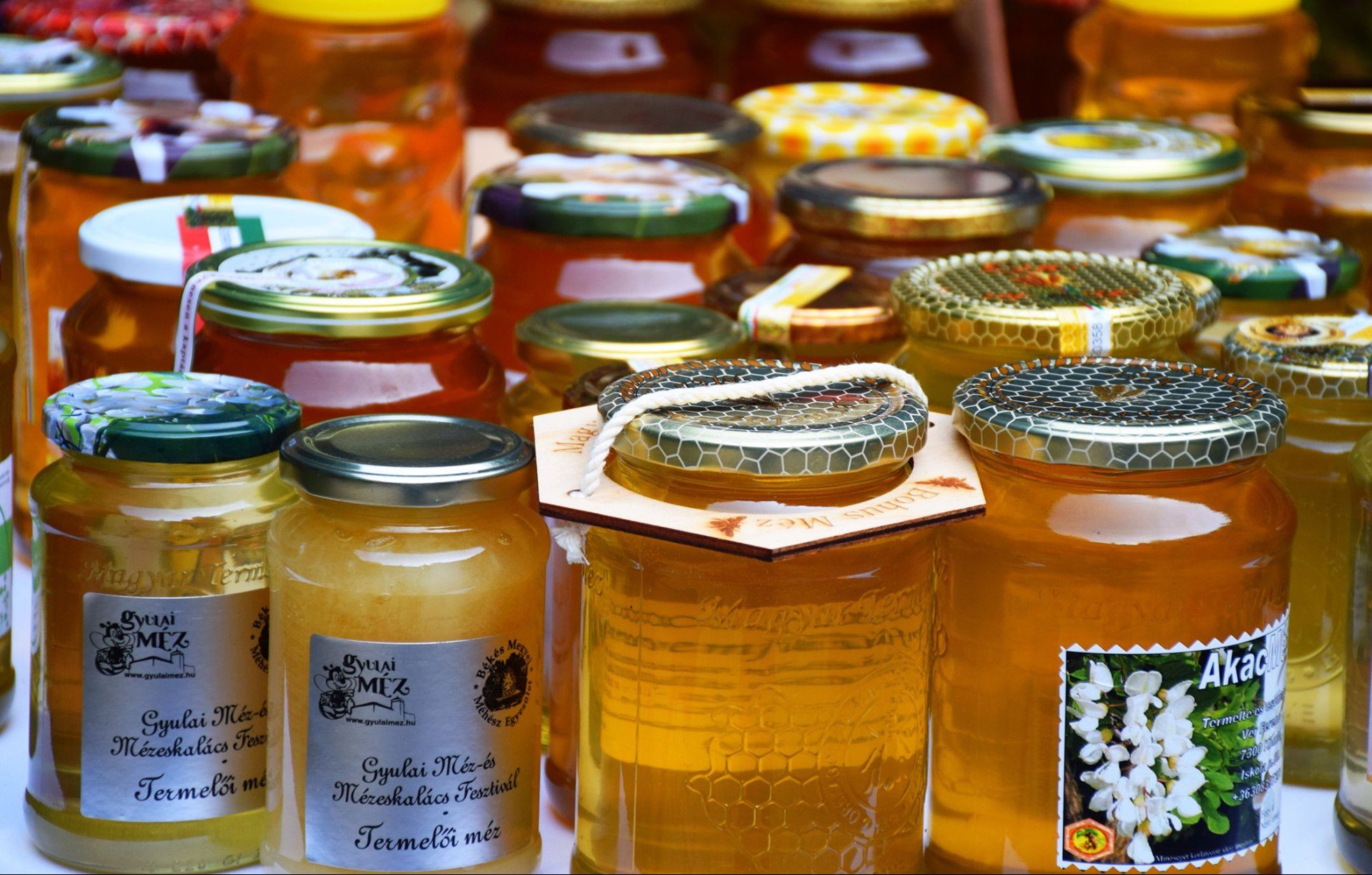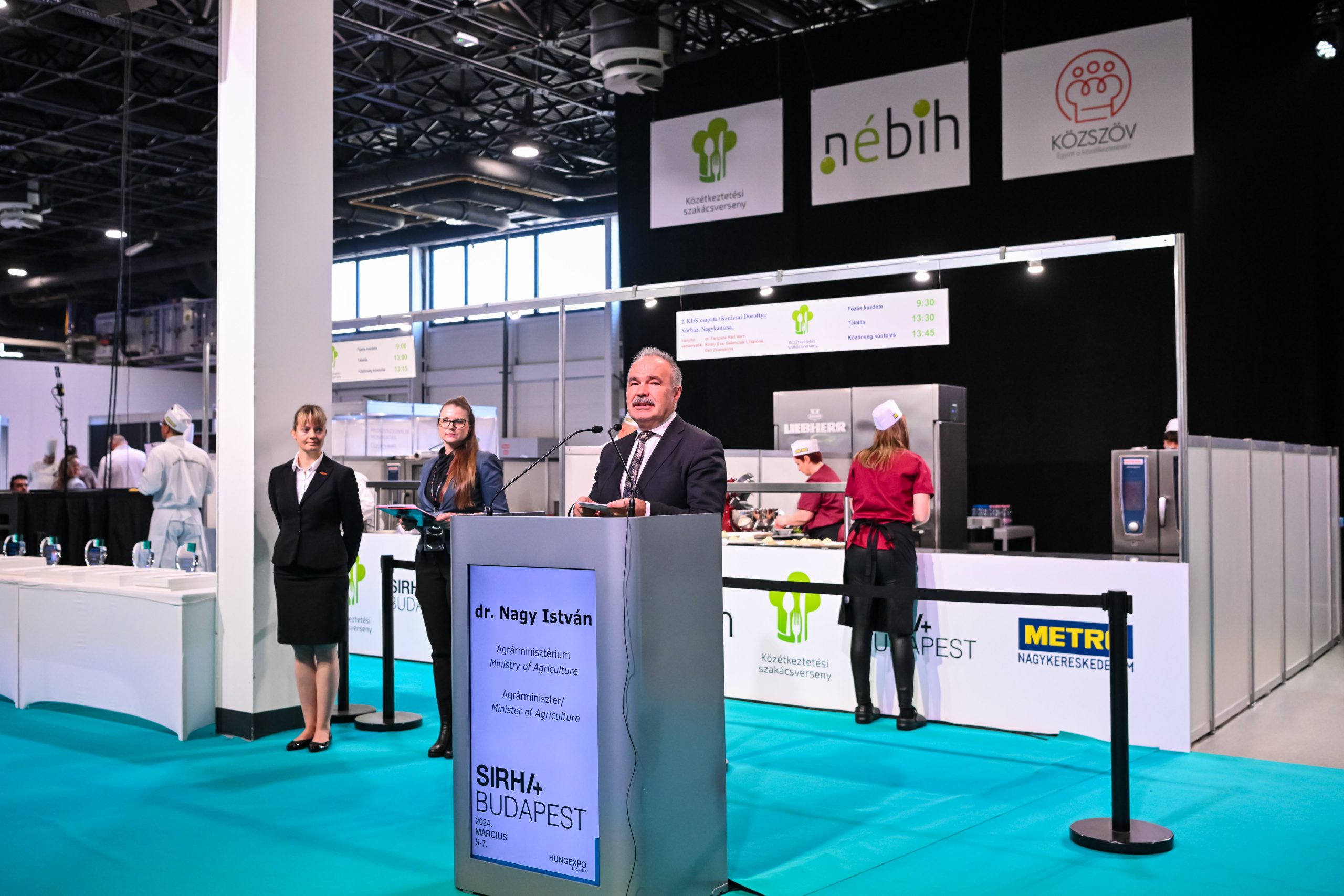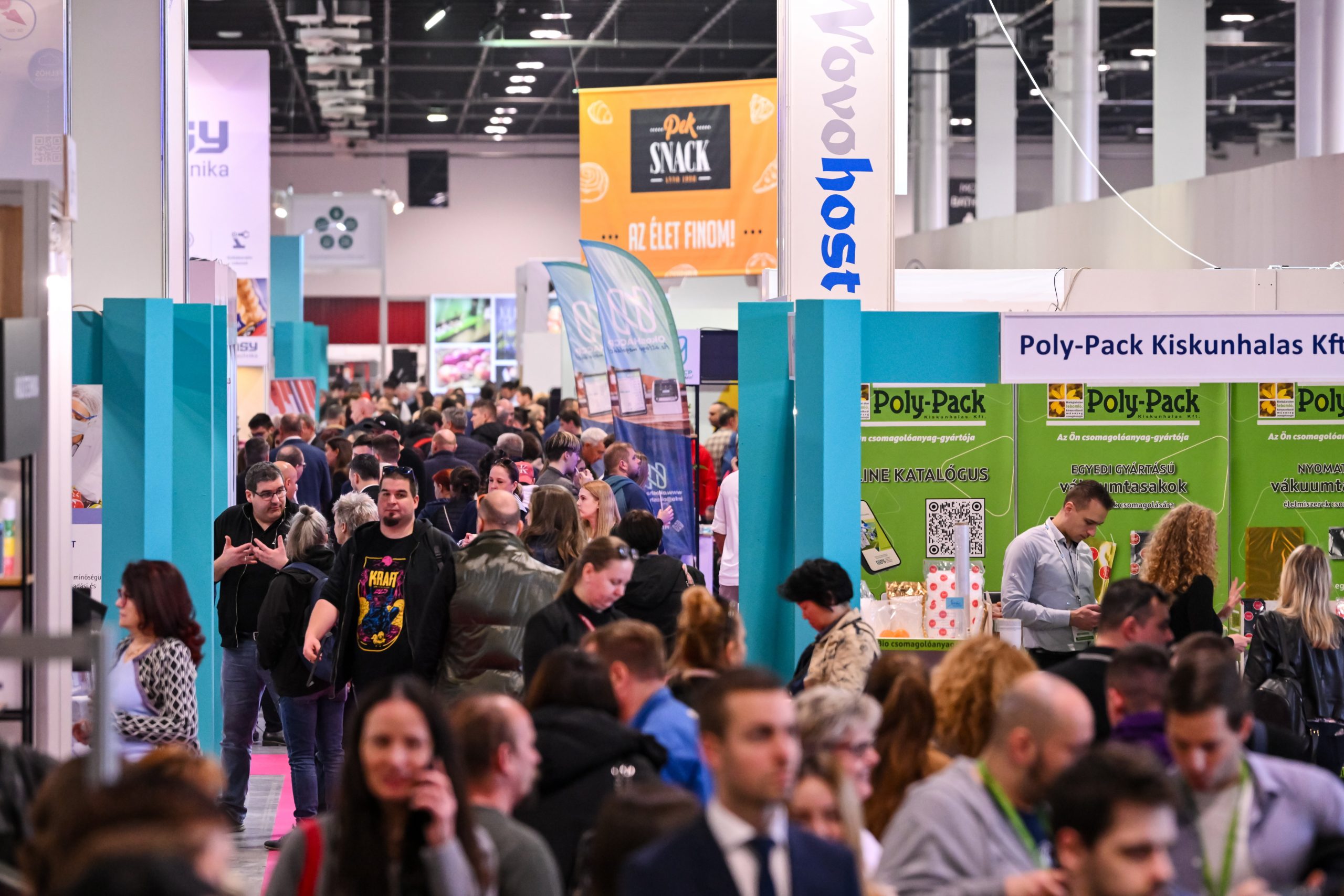
In line with Hungary's objectives, all countries of origin will have to be indicated on the labels.Continue reading
The Sirha Budapest International Food and HoReCa (Hotel-Restaurant-Café) Trade Fair opened on Tuesday. Speaking at the opening ceremony, Minister of Agriculture István Nagy said that the government sees Hungarian agriculture and the food industry as a strategic sector, and historic resources are being invested to strengthen and develop it.
Minister Nagy stressed that a public consultation on the calls for proposals for food aid approved in the CAP Strategic Plan will take place in March. After that, the tenders for a total of HUF 200 billion (EUR 508 million) in support for the food industry will be launched, of which HUF 50 billion (EUR 127 million) will be for small-scale development of processing plants and HUF 150 billion (EUR 381 million) for complex development, he added.

Agriculture Minister István Nagy. Photo via MTI/Purger Tamás
Speaking about the exhibition, he noted that the fair is not only a place where visitors can discover the best of the Hungarian food sector, but also a place where producers and consumers, sellers and buyers can meet.
The cooperation between agriculture, producing excellent raw materials, and the food industry, increasing its competitiveness, can provide the population with high-quality Hungarian food,”
he emphasized.
István Nagy pointed out that the ministry and Nébih (National Food Chain Safety Office) have been committed for years to continuously improving the safety and quality of food served in public catering. To this end, Nébih has been running the Quality Driven Mass Catering Program since October 2015. The regulation helps to ensure that good quality food produced from local ingredients is put on the table, and also supports local producers to sell their products in a more predictable way, Nagy explained.
Continuing the tradition, there will also be a catering cook-off at the fair, the fifth time the competitors will compete on the basis of quality and sustainability criteria.
Also on the regulatory agenda is the European Commission’s 2023 proposal to amend the so-called Breakfast Directives on honey, fruit juices, and fruit jams. Of particular importance for Hungary is the labeling of honey mixtures to protect domestic honey and beekeepers. Ahead of EU legislation, the government has developed stricter rules on the origin of honey, with an amendment to the regulation that came into force on August 11 last year requiring the name of each country of origin to be indicated on honey mixtures in descending order of the weight of honey used. In the future, EU rules will also require the percentage of honey used to be indicated on the label.
The Minister pointed out that cultured meat produced by artificially cultivating animal tissue is already available to consumers in some countries of the world, but is not yet authorized as a new food in the EU. He said there were a number of ethical and legal concerns about this, as well as economic, sustainability, social, and public health issues. He noted that a draft Hungarian regulation had already been prepared to ban the production and marketing of cultured meat for food purposes.
Nagy concluded that
the production and marketing of local products plays an important role in preserving the sustainability, cultural customs, and identity of a given region,
and is therefore a key factor in rural development.
This year, Hungexpo Budapest Congress and Exhibition Center will host the most important players in the gastronomy of Hungary and the region for the sixth time, said Gábor Ganczer, CEO of Hungexpo. He added: on the 30,000 square meters of exhibition space, around 20,000 professional visitors will meet with more than 300 exhibitors from 16 countries between March 5-7.

Photo via MTI/Purger Tamás
Via MTI; Featured image via Facebook/SIRHA Budapest